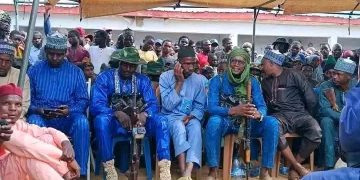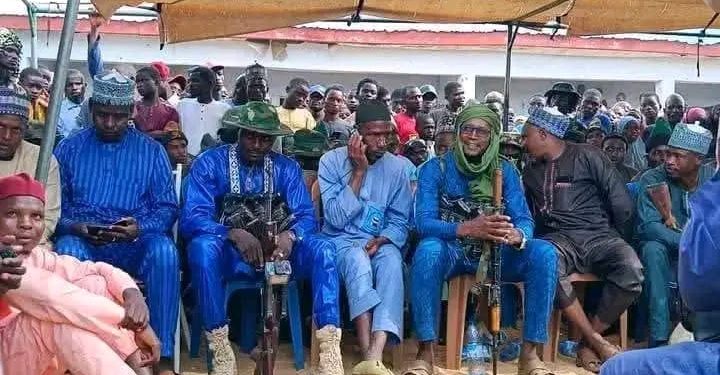Local communities in Katsina State have begun direct negotiations with armed groups in an attempt to curb years of violence, kidnappings and displacement. On Sunday, residents of Faskari Local Government Area — one of the state’s worst-hit councils — held a dialogue with prominent bandit leaders at Hayin Gada.
According to multiple sources, representatives of several armed groups accused of raids and abductions sat down with traditional and community leaders to discuss a ceasefire. The groups reportedly agreed to stop attacks on villages, ensure farmers can access their fields and release hostages. In return, they asked for freedom of movement, market access for Fulani herders and development projects in their areas.
Among those present was Isiya Kwashé Garwa, recently listed by the Defence Headquarters as one of Nigeria’s most-wanted terrorists. Also in attendance was Ado Alero, a notorious leader of armed groups in the North-west. Speaking in Hausa, Mr. Garwa condemned the blanket labelling of Fulani herders as criminals, insisting that every ethnic group has its share of wrongdoers. He warned that killings and abductions would persist unless what he called “injustice” against Fulani communities ended.
Security analysts say Mr. Garwa, who hails from Kamfanin Daudawa in Faskari, has been linked to multiple kidnappings and attacks in Katsina and neighbouring states. His public appearance at the peace meeting highlights a recurring pattern where wanted individuals become central to local negotiations.
Videos from the event also show Babaro — accused of killing 32 worshippers in a Katsina mosque and of orchestrating raids in Kankara and Malumfashi — as well as Malam Hassan Dan Tawawe, another former high-profile suspect, participating in the talks.
Similar arrangements are reportedly underway in Jibia and other frontline areas, where residents have been negotiating directly with bandit leaders to secure safe passage, end raids and reopen markets.
Governor Dikko Radda recently acknowledged these efforts at the launch of an EU-funded conflict prevention project. Although he had earlier distanced his administration from talks with bandits, he now describes the deals as “community-driven initiatives” that have helped calm four of Katsina’s eight high-risk councils.
However, experts warn that earlier peace deals in Katsina and Zamfara between 2019 and 2021 collapsed when armed groups regrouped and expanded their influence. Many residents also report continuing to pay levies and “taxes” to the groups despite claims of peace.
Katsina has become the epicentre of Nigeria’s rural banditry crisis. The International Organisation for Migration estimates that over 1.3 million people have been displaced across the North-west since February 2025. It remains unclear what role, if any, the police played in the current peace process, as the state police spokesperson did not respond to calls.















